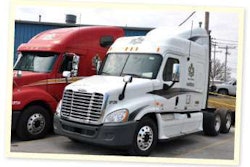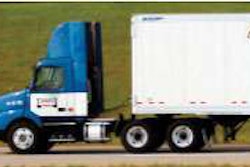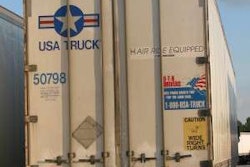Roehl Transport
Marshfield, Wisconsin
Reduced its critical crash rate 75 percent by building a unique safety culture.
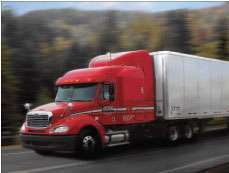
Nationwide line-haul carrier does things ‘The Roehl Way’
By Jeff Crissey
In many ways, Roehl Transport isn’t that different from other large carriers. The Marshfield, Wis.-based company has a diverse fleet of more than 1,800 trucks and tractors that haul a mix of goods throughout 48 states and Canada. It has an excellent on-time delivery rate and a sound reputation. But one aspect of Roehl’s organization distinguishes it from the crowd – a commitment to safety above all else.
That philosophy has led to a host of recognitions and awards, including consecutive National Fleet Safety Award grand prizes from the Truckload Carriers Association, as well as the President’s Award and three Excellence in Claims/Loss Prevention Awards from the American Trucking Associations, to name a few.
What makes Roehl’s safety approach different from many carriers is that the organization doesn’t view safety as a priority; it sees safety as a value. Differentiating the two may sound like a game of semantics, but Roehl goes to great lengths to distinguish the two and establish safety as a value throughout the organization to the point that safety clearly is regarded as its cornerstone.
“A lot of companies say safety is their priority,” says John Spiros, vice president of safety and claims management. “We don’t say safety is a priority, because priorities change. Values don’t change because they are deeply held beliefs.”
Every member of Roehl’s organization plays a role in its safety culture. “Clearly the drivers are on the front line of the safety experience, but it is interwoven within everyone in the company,” says Greg Koepel, vice president of workforce development and administration.
Establishing the importance of safety among Roehl’s employees begins with an overall framework for reinforcing the system of values or building a culture, referred to as the “6 Cs”:
• Communication: Articulate your values and expectations of behavior;
• Commitment: Remain committed to the message;
• Consistency: The belief system won’t change;
• Compliance: Insist on behavior that reflects the values;
• Consequence: Address the people that don’t reflect the values in their behavior, and recognize people that do model the values; and
• Credibility: Be a model for the values we seek to instill.
“When you start from the basis of values, it’s a lot different when you talk about training rather than saying we have to do it because ‘The law says this,’ or ‘The DOT wants us to do it this way,’ ” says Koepel. “When what is important to an individual aligns with what is important to the organization, it becomes self-fulfilling.”
A new safety strategy
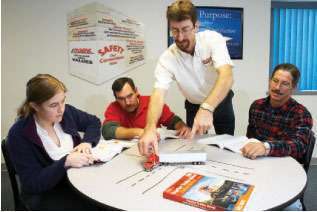 Every newly hired Roehl Transport driver undergoes The Roehl Way training process that includes a course on safe driving techniques and a lesson emphasizing the value of safety from a corporate and individual level.
Every newly hired Roehl Transport driver undergoes The Roehl Way training process that includes a course on safe driving techniques and a lesson emphasizing the value of safety from a corporate and individual level.In 2003, Roehl launched a new safety philosophy called “The Roehl Way,” a two-part safety platform that establishes a strong safety ethic with every employee and a protective driving technique that teaches drivers to predict rather than react to their surroundings. The new safety culture has led to a reduction in critical crashes – defined as rear end, lane change, intersecting/run under and loss of control – by 75 percent in the last five years. Rear-end crashes have been reduced by 70 percent.
Most carriers coach drivers on the concept of defensive driving, something that Roehl believes imparts an “us vs. them” mentality in the mind of the driver. Instead, Roehl employs a “protective driving” approach that humanizes the relationship between truck driver and motorist as a “friend, family member or loved one.” Roehl ask its employees not to refer to other motorists as “four-wheelers” because it dehumanizes the individual driving the car.
For Roehl, no load is valuable enough to move if it means compromising the value of safety.
“We decided to set the example for the trucking industry by accepting responsibility to protect other motorists on the highway,” says Spiros. “Our goal – what we strive for – is to protect others.” To that end, Roehl developed The Safe Seven, a list of driving techniques to reinforce its protective driving approach.
In addition to its numerous safety awards, the success of Roehl’s safety philosophy also is visible at the driver level. Last month, the company recognized its first four-million-mile safe driver and likely will recognize a second four-million miler later this month. In addition to a handful of two- and three-million-mile safe drivers, the company has recognized more than 100 one-million milers.
’Operationalizing’ safety
Roehl refers to implementing The Roehl Way safety philosophy as “operationalizing” safety. While the company’s four-person safety department is the top of the corporate safety structure, the “safety above all else” mandate extends to the 65 fleet managers as well as its 1,800 drivers to the point that a driver is allowed to make a determination to stop on a route due to inclement weather or unsafe road conditions.
Fleet managers, who are responsible for driver coaching, work assignments and performance management, also manage driver safety issues directly. “We’re set up so that the safety department oversees and evaluates to make sure [the safety culture] is adhered to, but the fleet managers are the ones responsible to monitor their drivers,” says Spiros. “Each of our fleet managers operates from a perspective of safety to the point of unilaterally ‘shutting a driver down’ that is not in a safe or legal situation.”
Innovators profiles carriers and fleets that have found innovative ways to overcome trucking’s challenges.
If you know a carrier that has displayed innovation, contact Avery Vise at [email protected] or 800-633-5953.

